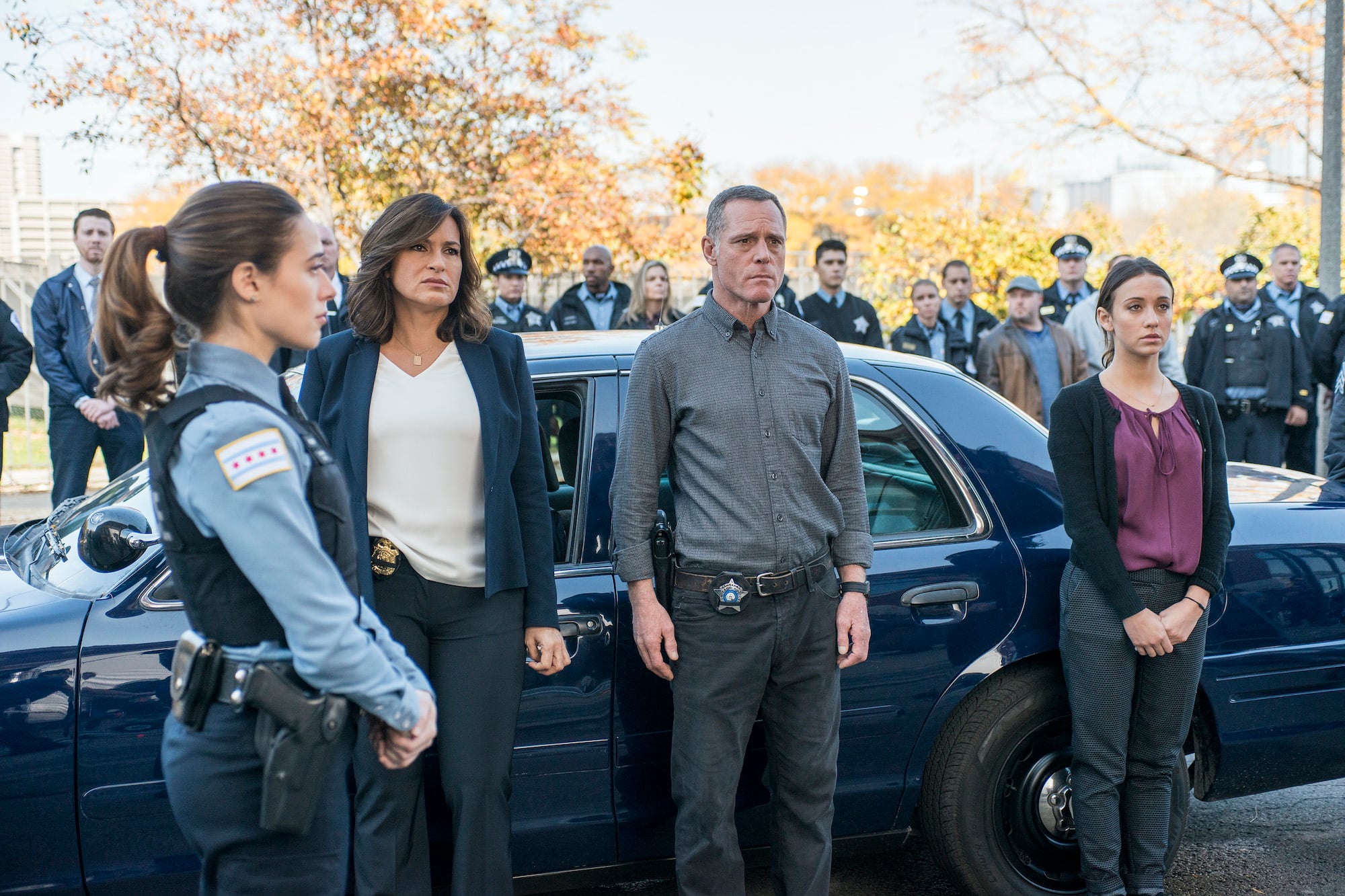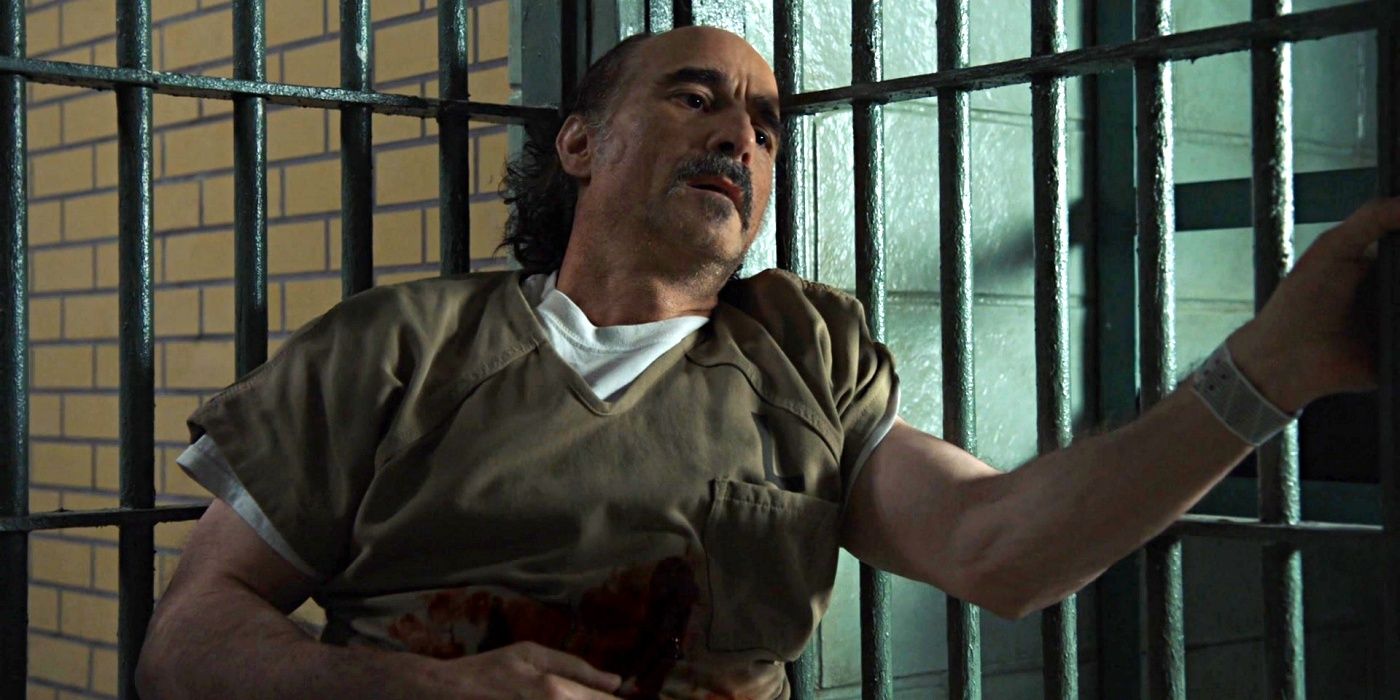Tragic Losses: Chicago PD Mourns Devastating Deaths
What is "Chicago PD Death"?
Chicago PD Death refers to the deaths of police officers in the line of duty in the city of Chicago.
It is a serious problem that has a significant impact on the city and its residents. In 2021, there were 10 Chicago PD officers killed in the line of duty, the highest number in over a decade.
- Spooky And Chic Enchanting October Nail Colors To Embrace The Fall
- Discover The Secrets Hidden Within 1144 Unlocking The Enigma Of The Unknown
Importance and Benefits
Chicago PD Death is a reminder of the dangers that police officers face every day. It is also a call to action to do more to support our police officers and to reduce the number of deaths in the line of duty.
Key Aspects of Chicago PD Death
- The number of Chicago PD officers killed in the line of duty has been increasing in recent years.
- The majority of Chicago PD officers killed in the line of duty are shot and killed.
- The deaths of Chicago PD officers have a significant impact on the city and its residents.
Causes of Chicago PD Death
- The increase in the number of Chicago PD officers killed in the line of duty is due to a number of factors, including the rise in violent crime in the city.
- The majority of Chicago PD officers killed in the line of duty are shot and killed because they are often the first to respond to violent incidents.
- The deaths of Chicago PD officers have a significant impact on the city and its residents because they create a sense of fear and insecurity.
Solutions to Chicago PD Death
- There are a number of things that can be done to reduce the number of Chicago PD officers killed in the line of duty, including increasing funding for police training and equipment, and working to reduce violent crime in the city.
- We can also support our police officers by showing them our appreciation and by working to create a more positive relationship between the police and the community.
- By working together, we can make Chicago a safer city for everyone.
Chicago PD Death
Chicago PD Death refers to the deaths of police officers in the line of duty in the city of Chicago. It is a serious problem that has a significant impact on the city and its residents.
- The Ultimate Guide To The Below Deck Cast Meet The Yachties Behind The Drama
- A Guide To Yellowstone And James Remars Role In The Series
- Increasing Violence: The rise in violent crime in Chicago has led to an increase in the number of officers killed in the line of duty.
- Dangerous Situations: Officers are often the first to respond to violent incidents, putting them in dangerous situations.
- Lack of Resources: Police departments are often underfunded and understaffed, which can lead to officers being overworked and underprepared.
- Community Relations: Negative relationships between the police and the community can make it difficult for officers to do their jobs effectively.
- Mental Health: The stress of the job can take a toll on officers' mental health, leading to suicide and other mental health issues.
These are just some of the key aspects of Chicago PD Death. By understanding these aspects, we can begin to develop solutions to reduce the number of officers killed in the line of duty.
Increasing Violence
The rise in violent crime in Chicago has led to an increase in the number of officers killed in the line of duty. This is because officers are often the first to respond to violent incidents, putting them in dangerous situations.
- Gang Violence: Gang violence is a major problem in Chicago, and it is a leading cause of death for police officers. In 2021, seven Chicago PD officers were killed in shootings, and all of them were responding to gang-related incidents.
- Drug-Related Violence: Drug-related violence is another major problem in Chicago, and it is also a leading cause of death for police officers. In 2021, two Chicago PD officers were killed in shootings, and both of them were responding to drug-related incidents.
- Domestic Violence: Domestic violence is also a major problem in Chicago, and it can be very dangerous for police officers who respond to these calls. In 2021, one Chicago PD officer was killed in a shooting, and the officer was responding to a domestic violence call.
These are just a few of the ways that the rise in violent crime in Chicago has led to an increase in the number of officers killed in the line of duty. It is a serious problem that needs to be addressed.
Dangerous Situations
Police officers are often the first to respond to violent incidents, which puts them in dangerous situations. This is a major factor in Chicago PD Death, as officers are more likely to be killed in the line of duty when they are responding to these types of incidents.
- Gang Violence: Gang violence is a major problem in Chicago, and it is a leading cause of death for police officers. In 2021, seven Chicago PD officers were killed in shootings, and all of them were responding to gang-related incidents. Gang members are often armed and dangerous, and they do not hesitate to shoot at police officers.
- Drug-Related Violence: Drug-related violence is another major problem in Chicago, and it is also a leading cause of death for police officers. In 2021, two Chicago PD officers were killed in shootings, and both of them were responding to drug-related incidents. Drug dealers are often armed and dangerous, and they may also be under the influence of drugs, which can make them even more unpredictable.
- Domestic Violence: Domestic violence is also a major problem in Chicago, and it can be very dangerous for police officers who respond to these calls. In 2021, one Chicago PD officer was killed in a shooting, and the officer was responding to a domestic violence call. Domestic violence calls are often volatile and unpredictable, and officers never know what they are going to walk into.
- Other Violent Incidents: In addition to gang violence, drug-related violence, and domestic violence, police officers may also be called to respond to other violent incidents, such as robberies, assaults, and shootings. These incidents can also be dangerous for officers, as they may not know what to expect.
These are just a few of the dangerous situations that police officers face on a daily basis. These situations put officers at risk of being killed in the line of duty, and they are a major factor in Chicago PD Death.
Lack of Resources
The lack of resources for police departments is a major contributing factor to Chicago PD Death. When police departments are underfunded and understaffed, officers are more likely to be overworked and underprepared, which can lead to fatal mistakes.
- Overworked Officers: When police departments are understaffed, officers are often forced to work long hours and multiple shifts in a row. This can lead to fatigue and burnout, which can impair officers' judgment and reaction time.
- Underprepared Officers: When police departments are underfunded, they may not have the resources to provide officers with adequate training and equipment. This can leave officers unprepared to handle dangerous situations, which can lead to fatal consequences.
- Lack of Equipment: When police departments are underfunded, they may not have the resources to provide officers with the equipment they need to stay safe. This can include things like bulletproof vests, body cameras, and tasers.
- Lack of Training: When police departments are underfunded, they may not have the resources to provide officers with the training they need to handle dangerous situations. This can include things like de-escalation training, crisis intervention training, and firearms training.
The lack of resources for police departments is a serious problem that needs to be addressed. By providing police departments with the resources they need, we can help to reduce the number of Chicago PD deaths.
Community Relations
When there is a negative relationship between the police and the community, it can make it difficult for officers to do their jobs effectively. This can lead to a lack of trust and cooperation between the police and the community, which can make it difficult to solve crimes and prevent violence.
- Title of Facet 1: Lack of Trust
When there is a lack of trust between the police and the community, it can make it difficult for officers to do their jobs effectively. This is because people may be less likely to report crimes or cooperate with investigations if they do not trust the police. This can lead to a decrease in the clearance rate for crimes and an increase in violence.
- Title of Facet 2: Lack of Cooperation
When there is a lack of cooperation between the police and the community, it can make it difficult for officers to do their jobs effectively. This is because people may be less likely to provide information to the police or assist with investigations if they do not feel like they are being treated fairly. This can lead to a decrease in the number of arrests and convictions and an increase in crime.
- Title of Facet 3: Increased Violence
When there is a negative relationship between the police and the community, it can lead to an increase in violence. This is because people may be more likely to take the law into their own hands if they do not trust the police to protect them. This can lead to an increase in vigilantism and other forms of violence.
- Title of Facet 4: Damaged Legitimacy
When there is a negative relationship between the police and the community, it can damage the legitimacy of the police. This is because people may begin to see the police as an occupying force rather than a force for good. This can lead to a decrease in the public's support for the police and an increase in crime.
Negative relationships between the police and the community can have a devastating impact on public safety. It is important to build trust and cooperation between the police and the community in order to reduce crime and violence and create a safer environment for everyone.
Mental Health
Police officers face a unique set of stressors that can take a toll on their mental health. These stressors include exposure to violence, trauma, and death; long and irregular hours; and the need to make life-or-death decisions. As a result, police officers are at an increased risk for developing mental health problems, including depression, anxiety, and post-traumatic stress disorder (PTSD).
- Increased Risk of Suicide: Police officers are more likely to die by suicide than members of the general population. In 2019, the suicide rate for police officers was more than twice the national average.
- Increased Risk of PTSD: Police officers are also more likely to develop PTSD than members of the general population. PTSD is a mental health condition that can develop after exposure to a traumatic event. Symptoms of PTSD can include flashbacks, nightmares, avoidance of reminders of the trauma, and difficulty sleeping.
- Increased Risk of Depression and Anxiety: Police officers are also more likely to experience depression and anxiety than members of the general population. Depression is a mental health condition that can cause feelings of sadness, hopelessness, and worthlessness. Anxiety is a mental health condition that can cause feelings of nervousness, worry, and fear.
- Increased Risk of Substance Abuse: Police officers are also more likely to abuse alcohol and drugs than members of the general population. Substance abuse can be a way to cope with the stress of the job, but it can also lead to addiction and other health problems.
The mental health of police officers is a serious issue that needs to be addressed. By providing police officers with access to mental health resources and support, we can help to reduce the risk of suicide, PTSD, depression, anxiety, and substance abuse.
FAQs about Chicago PD Death
Chicago PD Death refers to the deaths of police officers in the line of duty in the city of Chicago. It is a serious problem that has a significant impact on the city and its residents. Here are some frequently asked questions about Chicago PD Death:
Question 1: What are the main causes of Chicago PD Death?
Answer: The main causes of Chicago PD Death are the rise in violent crime in the city, the dangerous situations that officers are often forced to respond to, the lack of resources for police departments, and the negative relationships between the police and the community.
Question 2: What can be done to reduce the number of Chicago PD deaths?
Answer: There are a number of things that can be done to reduce the number of Chicago PD deaths, including increasing funding for police training and equipment, working to reduce violent crime in the city, and building trust and cooperation between the police and the community.
Summary: Chicago PD Death is a serious problem that needs to be addressed. By understanding the causes of Chicago PD Death and working together to find solutions, we can help to reduce the number of officers killed in the line of duty.
Chicago PD Death
Chicago PD Death is a serious problem that has a significant impact on the city and its residents. The number of officers killed in the line of duty has been increasing in recent years, and the majority of these deaths are due to shootings.
There are a number of factors that contribute to Chicago PD Death, including the rise in violent crime in the city, the dangerous situations that officers are often forced to respond to, the lack of resources for police departments, and the negative relationships between the police and the community. It is important to address these factors in order to reduce the number of officers killed in the line of duty.
We can all play a role in reducing Chicago PD Death. We can support our police officers by showing them our appreciation and by working to create a more positive relationship between the police and the community. We can also work to reduce violent crime in the city by investing in education and job training programs, and by providing support for at-risk youth.
By working together, we can make Chicago a safer city for everyone.
- Spectacular Nana Recipes A Culinary Journey
- All Movie Hub Your Ultimate Destination For Film Enthusiasts

Chicago PD star mourns devastating death of costar with touching

'Chicago P.D.' Nadia's Murder Was 'Never Part of the Plan', Showrunner

What Happened To Olinsky On Chicago PD? Death & Aftermath Explained